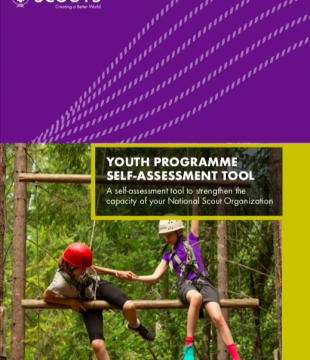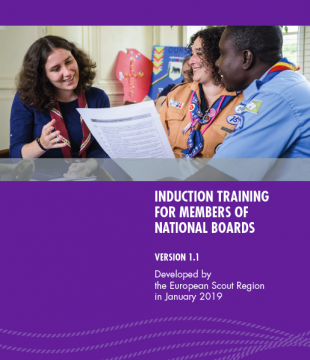Browse hundreds of resources
Explore our extensive library to find toolkits, e-learning courses, best practices, and more!

Find out how Scouts can join the world largest mobilization contribute to achieving the 17 Sustainable Goals with community service actions. Get ready to link Scout actions with SDGs and enable young people to be ready to become change-makers with Key Competencies for Sustainability.

This e-learning course is an introduction to Humanitarian codes, principles, and standards that are in place to ensure accountability, prevent harm, and protect the rights and dignity of affected people. It also introduces Scouts o other humanitarian actors and coordination mechanisms.

This e-learning course will introduce you the job description for Adults in Scouting, why it is important to have it for Scouting's positions, the main information that it should contain, their typical structure and some mistakes we mostly do when writing one.

If you want to know more about Diversity and Inclusion in Scouting, then this course was made for you! We want to make Scouting more meaningful and relevant in today’s world, by respecting diversity and welcoming everyone.

The Youth Involvement Self-Assessment Tool helps you to assess your NSO’s level of alignment and consistency with the World Scout Youth Involvement Policy and its framework.

The Youth Programme Self-Assessment Tool helps your NSO to assess the level of alignment and consistency of their Youth Programme with the World Scout Youth Programme Policy.

A National Scout Organization (NSO) must meet certain membership requirements established by the constitution of the World Organization of the Scout Movement (WOSM) prior to submitting an application for WOSM membership.

This document was created as a guide for National Scout Organisations and Scout leaders to use education for the Sustainable Development Goals in their Youth Programme.

This document is a structure for an induction training course for members of a National Board of an NSO/NSA.
